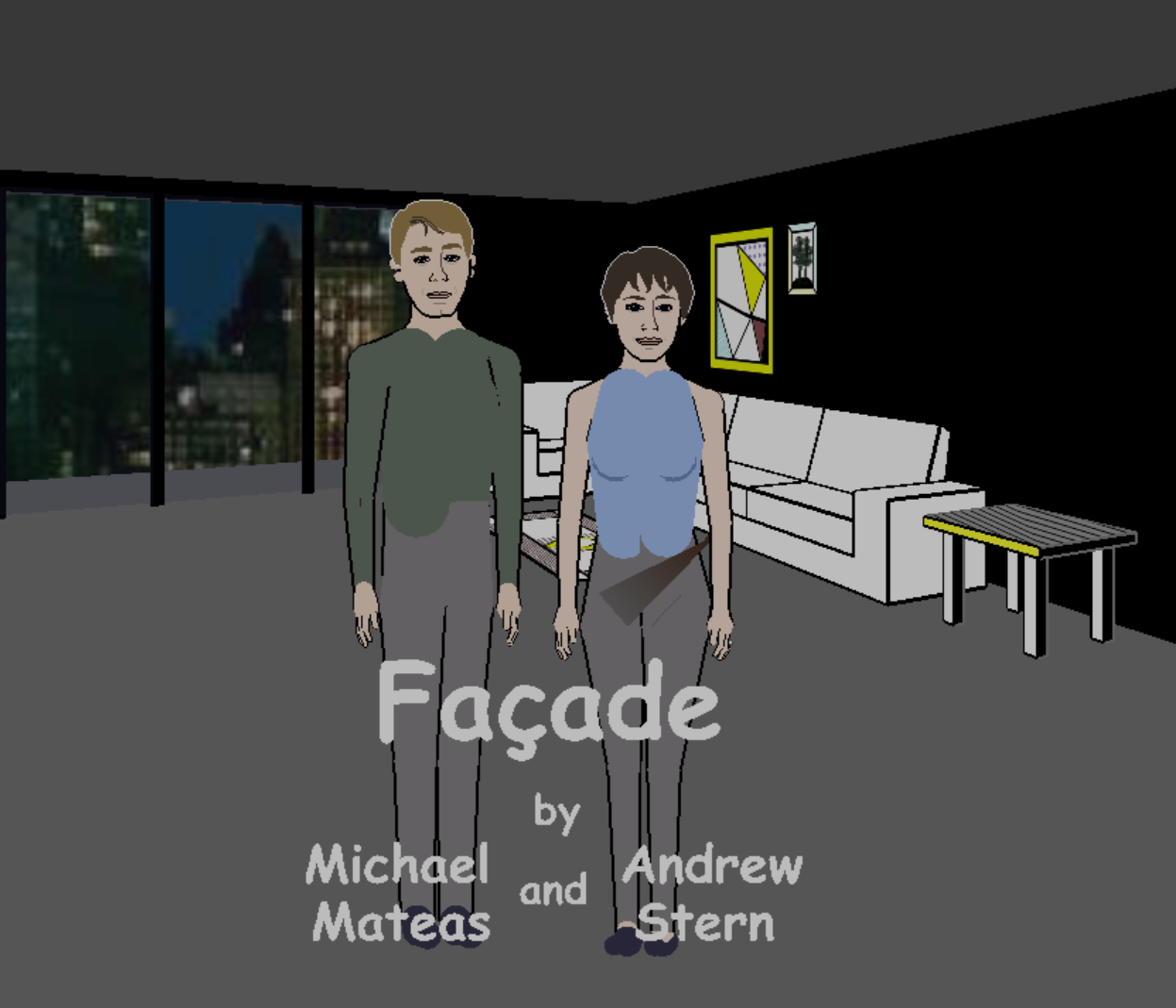In the world of social isolation we find ourselves in (with shelter-in-place extended to at least May 3 in Santa Clara County), what better way to remind yourself of the outside world than to literally throw yourself into the dinner party from hell?
I came across “Facade” (2005) through a stroke of luck, having seen it reflected across memes, particularly ones surrounding “melons,” throughout the last decade. This interactive story starts with a phone call from your friend Trip, inviting you over to his house to meet his wife Grace. As you enter Grace and Trip’s home, you very quickly find yourself in the middle of a relationship conflict you are called upon to diffuse. One you can alternatively easily destroy, depending on your mood. Marketed as an “artificial intelligence experiment,” “Facade” removes the pre-selected choices and grants the player full autonomy to react as genuinely as they would in real life.
This game is the digital manifestation of “I don’t know what to say,” as you struggle to respond (in 32 characters or less) to the escalating relationship conflict you never signed up for. Depending on your response to questions, or the ways you probe, you as a player can uncover everything from affairs to family trauma to controlling and manipulative behavior. The mechanics are simple: type, move around, and interact with objects and/or the two characters. Simply approaching or commenting on certain objects will prompt memories and push the narrative forward.
A throwback to the school computer lab days with Cleverbot, much of the popularity of the game is in the novelty of “genuine” communication between human and computer, with the player able to type freely. Playing it more than 15 years after its initial release, I wonder what can be learned from this game: a visually jarring, frequently glitchy simulation that has evolved its cult following from the multiple ways a player can break it apart. Perhaps the intrigue lies in the multiple possibilities, with dozens of walkthroughs and player guides to get “good” or “bad” endings. In certain scenarios, Trip or Grace storm out, with the marriage being deemed as over; in others, they admit to their faults and promise to work together to be better. And for the chaotic evil players, there are a fair share of abrupt, inappropriate behavior endings that will immediately get the door slammed in your face.
What have the developers crafted as the “ideal” ending, when you know that the hidden easter eggs (like flirtation-ships, communication issues, feelings of inferiority and the drink that Trip names after Grace’s Soul is filled with “lots of bitters and ice”) are genuine accounts of what their day-to-day relationship is? The premise of the game is one that is in fact embedded in conflict, conflict that cannot and should not be resolved in 10 minutes. While the game itself is marketed as as having a goal to “make them work through their problems by making both confess what really bothers them about each other,” I was so frustrated by the relationship itself, projecting my discomfort with getting a walkthrough that wholly victimized Grace, to even think about playing it again for a different ending. Both are irredeemable characters, if given the chance, and reveal that the generally agreed upon “good” ending, of having them resolve their differences in a “fair and balanced” way, is bullshit. To treat them as interchangeable, or their struggles as interchangeable is lazy writing. The emphasis on form, rather than character development, and the limited “due diligence” you can have in your sleuthing before they force you to tell them what to do makes this feel like an unfinished work. While heralded as one of the “1001 Video Games You Must Play Before You Die” (2010), I struggled sitting through it, finding myself wanting to scream at them in the words of any peer counselor (or conflict mediator): “You are the best equipped to solve your own problems, let me enjoy my drink in peace.”
While real-time “choose your own adventure” (or in this case “fix your own friends’ relationship”) may be a not-too-distant reality in the development of adaptive, AI-driven gaming, Facade’s experiment (though well-warranting the praise it got and hugely influential at the time) should be left as an experiment of the past.
Contact Julie Fukunaga at juliefa ‘at’ stanford.edu.
